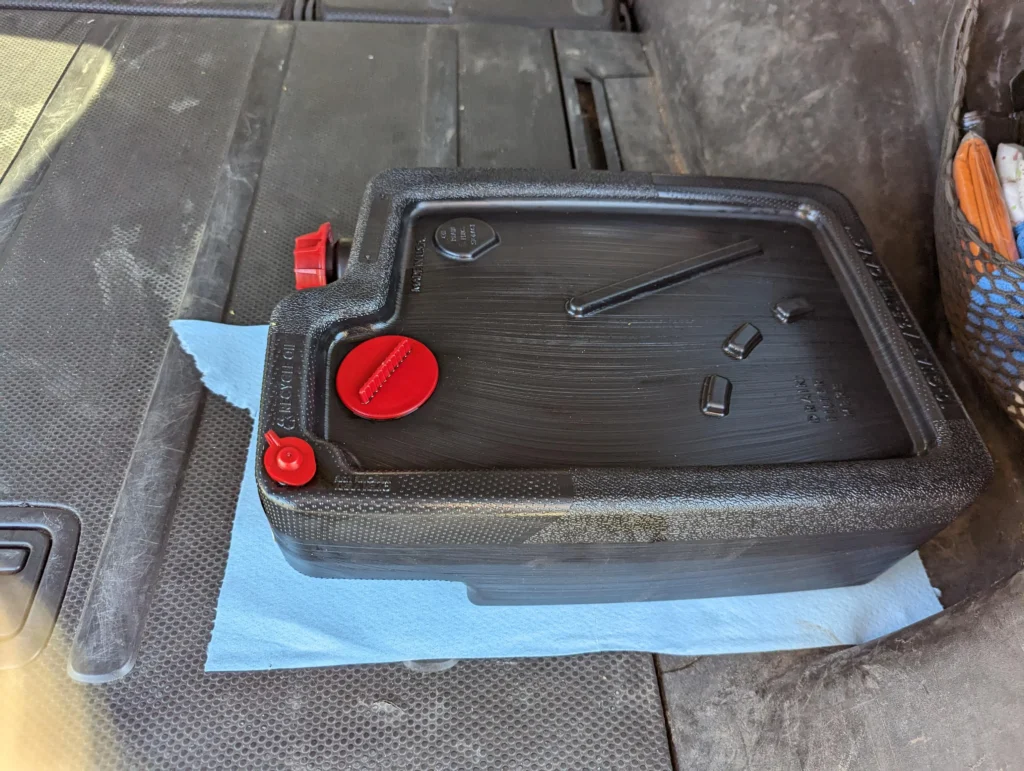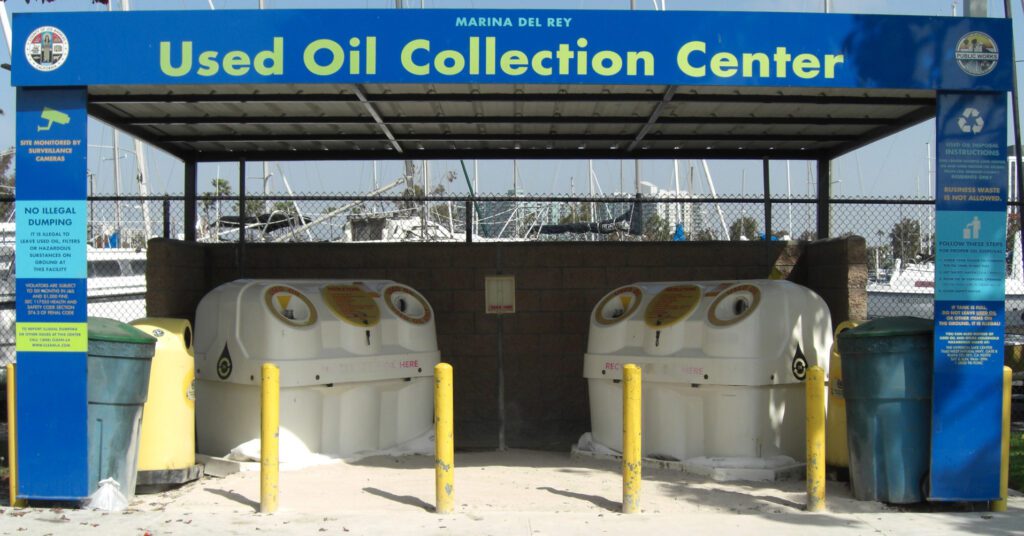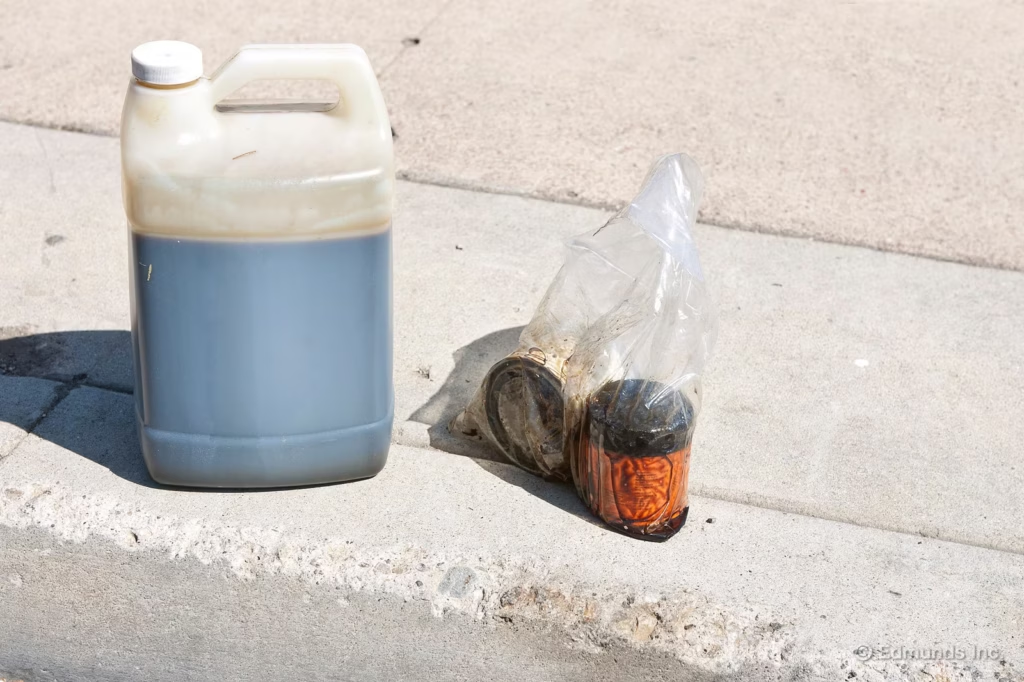Introduction
Used motor oil is a common household waste that requires special attention. When disposed of improperly, a single gallon of used motor oil can contaminate one million gallons of drinking water. This comprehensive guide will walk you through the proper methods for disposing of used motor oil, helping you protect the environment while staying compliant with regulations.
Why Proper Motor Oil Disposal Matters
Motor oil doesn’t wear out—it just gets dirty. This makes it a perfect candidate for recycling. When you change your vehicle’s oil, the used oil contains contaminants like dirt, metal scrapings, water, and chemicals. If poured down drains, thrown in trash, or dumped on the ground, these contaminants can find their way into soil, groundwater, and waterways.
Proper disposal isn’t just environmentally responsible—it’s legally required. The EPA classifies used motor oil as a hazardous waste, and improper disposal can result in significant fines. Additionally, it is a valuable resource that can be re-refined into new oil, processed into fuel oils, or used as raw materials for the petroleum industry.
Preparing Used Motor Oil for Disposal
Before disposing of your used motor oil, you need to properly collect and store it:
- Allow the oil to cool completely after draining from your vehicle
- Use a clean, leak-proof container with a tight-fitting lid
- Avoid using containers that previously held chemicals, food, or beverages
- Never mix used oil with other substances like antifreeze, solvents, or gasoline
- Label the container clearly as “Used Motor Oil”
Plastic containers that originally contained motor oil or similar automotive fluids work well for temporary storage. Many auto parts stores also sell dedicated oil drain pans with built-in spouts for easy pouring.

Where to Take Used Motor Oil
Most communities offer several options for used oil disposal. Here are the most common places that accept used motor oil:
Auto Parts Stores and Service Centers
Many national auto parts retailers accept used motor oil for free recycling. Stores like AutoZone, Advance Auto Parts, O’Reilly Auto Parts, and NAPA Auto Parts typically have collection programs. Many Jiffy Lube, Valvoline, and similar quick-lube services will also take your used oil, especially if you’re a customer.
Before making the trip, call ahead to verify they accept used oil and ask about any quantity limits. Some locations may also accept used oil filters and empty oil containers.
Local Hazardous Waste Collection Facilities
Most counties and municipalities operate permanent household hazardous waste (HHW) collection facilities or hold regular collection events. These programs accept used motor oil along with other household hazardous wastes like paint, batteries, and chemicals.
Your local environmental services department, waste management agency, or public works department can provide information about these services. Many communities also have searchable online directories of hazardous waste disposal options.
Recycling Centers
Some community recycling centers accept used motor oil alongside other recyclables. These facilities may have specific drop-off hours for hazardous materials like used oil.

Curbside Collection Programs
Some areas offer curbside collection of used oil as part of their recycling programs. If available, you’ll typically need to place the oil in a special container provided by the collection service and set it out on designated collection days.
DIY Oil Recycling: What Not to Do
When disposing of used motor oil, it’s equally important to know what practices to avoid:
Never pour oil down drains, toilets, or sewers. This contaminates water supplies and can damage septic systems and municipal treatment plants.
Don’t dump oil on the ground, in gardens, or in storm drains. One quart of oil can create a two-acre oil slick on surface water.
Avoid placing containers of liquid oil in the trash. This is illegal in most jurisdictions and creates hazards at landfills.
Don’t store used oil in containers that might leak or break.
Never mix used oil with other substances if you plan to recycle it. Contaminated oil is much harder to recycle.
Recycling Oil Filters and Containers
Filters and empty oil containers also require proper disposal:
Oil Filters
- Remove the filter and allow it to drain completely by puncturing the dome end and letting it drain into your oil collection container
- Once thoroughly drained (ideally overnight), most jurisdictions allow you to dispose of the filter in regular trash
- However, many auto parts stores and recycling centers accept used oil filters for recycling as well
Oil Containers
Empty plastic oil containers can typically be recycled with other plastic containers in your regular recycling program. Make sure to drain them completely and replace the caps before recycling.

Commercial and Industrial Users
If you operate a business that generates used oil, different regulations may apply. Commercial generators typically cannot use the same disposal methods as households and must work with licensed waste haulers and document their oil disposal properly.
Benefits of Recycling Used Motor Oil
When you recycle your used motor oil, you’re making a significant positive impact:
Re-refining used oil requires only about one-third the energy of refining crude oil into new lubricating oil.
One gallon of used motor oil provides the same 2.5 quarts of lubricating oil as 42 gallons of crude oil.
Recycled motor oil can be re-refined and used again indefinitely, creating a sustainable cycle.
Proper recycling prevents soil and water contamination that can harm wildlife and human health.
Finding Local Disposal Options
To find the most convenient used oil recycling option in your area:
Visit Earth911.com and search for “motor oil” recycling using your ZIP code
Call the national Used Oil Hotline at 1-800-CLEANUP
Contact your local environmental health department
Check with your waste hauler or municipality about special collection programs
Ask at the auto parts store where you purchase new oil
The Future of Oil Recycling
As environmental concerns grow and resource conservation becomes increasingly important, recycling used motor oil will continue to be essential. Some emerging trends include:
More convenient collection systems, including expanded retail take-back programs
Advanced re-refining technologies that produce higher-quality recycled base oils
Increased consumer awareness and education about proper disposal methods
Growth of closed-loop systems where oil manufacturers take responsibility for recycling their products
Conclusion
Proper disposal of used motor oil is a simple yet impactful way to protect our environment. With convenient recycling options available in most communities, there’s no reason to improperly dispose of this hazardous waste. By taking the small extra step to recycle your used oil, you’re helping conserve valuable resources, prevent pollution, and comply with important environmental regulations.
Remember: when it comes to used motor oil, recycling isn’t just the right thing to do—it’s the legal requirement. Make proper oil disposal part of your regular vehicle maintenance routine, and you’ll be doing your part to keep our environment clean for future generations.